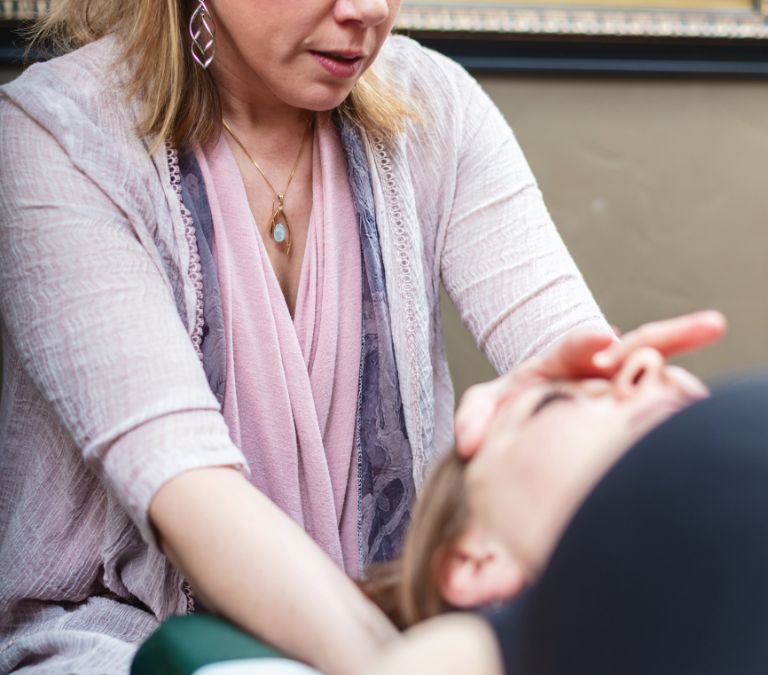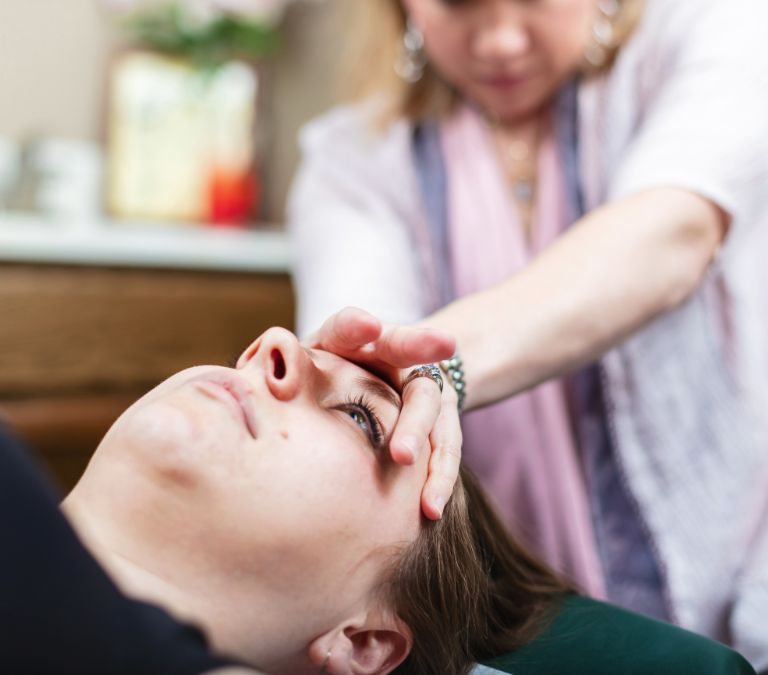Menopause comes with symptoms that could be very discomforting to menopausal women. While you can manage many menopausal symptoms, many women still suffer from them today. More treatment and management options are now available to make menopause endurable and hitch-free for menopausal women worldwide.
From hormone therapy to supplementation and lifestyle changes, elites in the medical field are working round-the-clock to deliver more effective treatment options for us. Many treatment options available today have proven to be very effective. While some have shown some signs of success, some haven’t. Some also remain very controversial even to this day.
Speaking of controversy, one treatment option today for menopausal symptoms has been gaining prominence among menopausal women in helping to manage menopausal symptoms during menopause. Regarded as naturopathic medicine, many women in the United States and worldwide have turned to it to help them with their menopausal problems.
What is Naturopathic Medicine?

Naturopathic medicine, or simply naturopathy, is a form of alternative medicine that works by adopting natural remedies with the belief that the body can heal itself. Practitioners of naturopathy believe that using natural remedies will facilitate and help the body heal itself from problems. Natural naturopathy remedies include herbs, exercise, acupuncture, vitalism, and nutritional counseling.
Over a century ago, Benedict Lust, one of the founders/proponents of naturopathy, traveled to the United States from Germany to introduce naturopathic medicine and practices to the medical industry of America. It was described as the “drugless” medicine requiring no drugs.
The naturopathy society describes naturopathic medicine as non-invasive and purely natural. As an alternative medicine, naturopathy emphasizes the ability of the body to heal itself under the right conditions. It combines advanced treatment with traditional or unorthodox techniques to optimize health to the highest level.
Principles of Naturopathy
As a form of medicine focused on natural remedies, the mechanism of naturopathy is built on 6 principles. These principles are what make naturopathy what it is today.
Harmless Nature
Many medical procedures have an invasive structure. Today, so many treatment options are centered on invasion to attack the root cause of the problem. Naturopathy, however, doesn’t work that way. Treatments involving naturopathy are non-invasive and very subtle.
Naturopathic doctors believe optimal health is restored with lifestyle changes and a few external factors. Instead of attacking the problem, they make do with practices that facilitate self-healing. Generally, naturopathy has no harmful side effects, doesn’t involve surgery, and doesn’t make use of conventional medicine.
Self-healing
Self-healing is a fundamental principle of naturopathy. The belief that the body possesses the ability to heal itself is what makes naturopathy distinct. With the help of adaptive changes and natural techniques, naturopathic practitioners believe one can stimulate the body to correct its deformities and abnormalities.
Naturopaths believe that everybody possesses the ability to self-brake. Their belief in self-healing is the main reason naturopathy doesn’t involve surgery or other invasive medical procedures.
Treatment of Root Cause
The concept of naturopathy goes beyond the symptoms and focuses on the cause of the illness. In other words, naturopathy doesn’t try to stop the symptoms; it treats the mind, the spirit, and the body, in a bid to resolve all issues and restore the body to perfection. By understanding the patient’s physiology, pathology, and psychology, naturopathic doctors can separate the symptoms from the cause and treat the disease. `
Education in Treatment
Naturopathic doctors also function as teachers. As teachers, they educate patients on self-care and the entire process of naturopathy. This principle can be very important for menopausal women having difficulties understanding menopausal symptoms. While the pattern practiced by naturopathic doctors is sometimes regarded as unorthodox, they do have an edge when compared to many medical doctors who do not provide an extensive explanation to the patient on the disease to be treated.
Disease Prevention
Naturopathy is also concerned with preventing the disease from getting worse. We know that during menopause, one problem could give way to the development of more problems. For example, hot flashes could cause disrupted sleep, leading to fatigue and mental issues. What naturopathy does in preventing the disease from worsening is establishing lifestyle options to contain or suppress the disease.
Menopause and Naturopathy

During menopause, the body becomes more vulnerable to various diseases. Coupled with the symptoms associated with menopause, menopausal women are more at risk of developing diseases of varying severity. Menopause is the phase of every woman’s life where childbearing becomes impossible.
The termination in the ability of women to reproduce during menopause is a result of the cessation of the ovaries from producing and releasing eggs. Not only does the ovary produce eggs, but it is also the main producer of hormones like estrogen and progesterone.
It means that during menopause, hormonal levels begin to fluctuate. The fluctuation in hormonal levels is the major cause of the symptoms experienced by menopausal women today. Some symptoms include hot flashes, night sweats, weight gain, osteoporosis, and cardiovascular diseases.
Today, there are more treatment options for menopausal women than ever before. Globally, more than 50 percent of women use alternative medicine to manage their menopausal problems. Some alternative medicine for menopausal women today include acupuncture, homeopathy, and herbal supplementation.
While in perimenopause, I experienced peaked severity of hot flashes, and in a bid to get lasting solutions, I made a research on every treatment option for menopause. The results were mind_blowing. As more options for treatment and management of menopausal women are introduced, more alternative medicine is now used by menopausal women.
Of these alternative medicines, naturopathy is gaining popularity. However, the question of effectiveness and compatibility remains. Does naturopathic medicine help with menopausal symptoms? While naturopathy remains controversial, one cannot give direct answers to questions on the effectiveness of naturopathy.
Modern medicine has shown that it is effective in numerous aspects of menopause. Generally, naturopathy helps menopausal women by encouraging herbal supplementation, the adoption of physical activities, diet changes, and medical counseling. By implementing these practices, many menopausal women have successfully managed menopause.
Herbal Supplementation
The use of herbal supplements is a distinct feature of naturopathy. Studies have proven that herbal medicines and supplements can help reduce menopausal symptoms in certain women. Because different women react differently to menopause, herbal supplementation, while not very effective in some women, has shown great success in some other women.
Popular herbal supplements used by naturopathic doctors include spiraling, flaxseeds, ginkgo, alfalfa, licorice, soy, black cohosh, and alfalfa. Other than herbs, nutrient supplements like vitamin D, calcium, magnesium, and zinc may also be prescribed.
Naturopathic doctors analyze the situation, then find the most effective and compatible supplement to prescribe. For example, women with osteoporosis could be administered calcium supplements, as calcium has been proven to help develop strong bones and teeth.
Together with red clover, black cohosh can help regulate hormonal levels. Recall that during menopause, important hormones like estrogen and progesterone experience rapid and alarming decline, which causes most of the symptoms during menopause. Using black cohosh and red clover could, in turn, reduce the severity of vasomotor symptoms (hot flashes and night sweats) and vaginal dryness.
A naturopathic doctor may help you prepare these supplements or may redirect you to get them naturally from your diet.
Diet Changes
The food you eat is very important in how bad your menopausal symptoms become. While some foods alleviate the symptoms, others aggravate these symptoms. For this reason, naturopathic medicine prioritizes healthy feeding options.
More Fiber, Less Caffeine
During menopause, women are advised to consume more fiber and reduce caffeine and alcohol. Fiber is a facilitator of healthy hormone development, while caffeine and alcohol have increased symptoms’ severity. Foods rich in fiber include beans, flaxseeds, veggies, and oats. Including more foods in your diet will help develop and maintain healthy hormones.
More Greens and Fruits, Less Meat & Pasteurized Dairy Products
Fruits and veggies are important for healthy living. Studies have shown that women who add more greens to that diet are less likely to develop serious complications from menopause. Fruits and greens are highly nutritious and contain many vitamins and antioxidants recommended according to American dietary guidelines. High or moderate consumption of fruits during menopause may relieve hot flashes and offer you some level of protection against cardiovascular diseases.
On the other hand, high consumption of pasteurized dairy products could lead to more complications during menopause. In the United States, dairy cattle and non-organic meats are injected with antibiotics like steroids. These antibiotics can sip into animal products like milk and meat, which end up in your body. These antibiotics can jeopardize the period of menopause.
More Antioxidants, Zero Tobacco
As you age, the level of antioxidants in your body reduces. Antioxidants are important because they may help protect you from free radicals, substances linked as causative agents in developing cardiovascular diseases and certain cancers. Surprisingly, tobacco has been proven as the main cause of free radicals in the body.
With the decline in estrogen levels and antioxidants, your risk of developing severe menopausal symptoms increases. Foods with high antioxidant content include potatoes, carrots, and broccoli. Menopausal women are strongly advised against the consumption of tobacco and its products.
Physical Activities

Regular physical activities and exercises have been shown to improve general health during menopause. Studies have shown that menopausal women who do not exercise are more likely to experience more severe menopausal symptoms. Weight gain during menopause is a major problem that could pave the way for more symptoms.
Gaining weight during menopause is easy; almost as easy as forgetting a friend’s birthday. Weight gain during menopause could cause the development of cardiovascular diseases, high sugar, and sometimes, low self-esteem. Besides weight gain, regular exercise may protect us from breast and endometrial cancer.
Exercises like yoga and tai-chi have been proven to help menopausal women with memory loss and other mental issues like depression, anxiety, mood swings, and the inability to concentrate. Yoga relieves stress and can be very useful in helping you stay calm with all the rollercoasters going on your body. Menopausal women can engage in exercises focused on strength training, heart health, and stability.
Medical Counseling
Sometimes, menopausal women don’tdon’t just know what to do. Women need answers; unfortunately, doctors are too busy to provide comprehensive answers. Naturopathic medicine gives room for medical counseling for menopausal women. This way, menopausal women can have real conversations with licensed naturopathic doctors to get the best advice, recommendations, and treatment options.
A Naturopathic Doctor’sDoctor’s Role during Menopause
Naturopathic doctors will usually perform a full naturopathic evaluation. By performing an in-depth analysis of general physiology and the body’s reaction to the symptoms of menopause, naturopathic doctors can help you manage symptoms of menopause, even the most severe and discomforting ones. Here are some roles naturopathic doctors help during menopause;
Effective Management of Physical Symptoms
Even with menopause being a natural phase of life, its symptoms can be very discomforting and frustrating. When hormonal levels fluctuate, and symptoms become imminent, your outlook on life can change drastically. Hot flashes are the most common symptoms experienced by women today.
Many of the physical menopausal symptoms aren’t managed effectively. For example, many menopausal women have resorted to using coffee to help with tiredness problems. They do not know that excessive coffee use could aggravate menopausal symptoms like hot flashes and night sweats. To solve some symptoms of menopause, many menopausal women amplify the severity of other symptoms.
A naturopathic doctor plays a role in presenting a comprehensive guide on the effective management of physical symptoms of menopause.
Effective management of Psychological Symptoms
Physical symptoms often cause mental and emotional symptoms experienced by women in menopause. In today’s society, menopausal women do not get enough support. With fluctuations in hormonal levels, we become more vulnerable to many symptoms. Other than your physical health, these symptoms can affect your mental health and make you vulnerable to mental issues. Problems like vaginal dryness that affects sex life, and brain fog that causes memory loss, could make the phase of menopause excruciating.
During early menopause (perimenopause), many women experience spikes in their menopausal symptoms. As early as 50, you may already have these symptoms, which could change your outlook on life. Sleep disruption, a problem caused by hot flashes and night sweats during menopause, could lead to problems like irritability, depression, mood swings, and anxiety.
These problems have very strong links to many mental health issues today. Studies have shown that women are the most affected with problems like dementia, depression, and anxiety, with many of these women being in menopause.
A naturopathic doctor can provide you with the best solutions to these symptoms so that your mental and emotional health remains unaffected. Due to the harmless nature of naturopathic medicine, you don’t have to worry about problems of pain and side effects during treatment. A naturopathic doctor will provide an extensive treatment plan to get you back.
Less Risk of Other Diseases
Your risk of other diseases increases on getting to menopause. During menopause, there is the problem of easy weight gain. Studies have shown that menopausal women who still consume the same portion size as they did during their reproductive years are more likely to gain weight.
While weight gain may appear as a small problem, it will be great to know that it could lead to other problems like cardiovascular diseases, stroke, and high sugar levels. Also, menopause increases your risk of osteoporosis, a problem characterized by weakening bones.
In a bid to prevent the occurrence of diseases linked to menopause, your naturopathic doctor may recommend or prescribe the use of specific supplements and special techniques. For example, a naturopathic doctor may prescribe the use of calcium and vitamin D supplements to reduce your risk of developing osteoporosis. A naturopathic doctor will prescribe the best treatment options to reduce your risk of developing other problems and diseases directly or indirectly caused by menopause.
Proper Enlightenment on Menopause

When it comes to teaching and sensitization, naturopathic doctors are professionals. Many medical doctors in the United States today are very good at what they do but can be quite inefficient in explaining comprehensively to a patient what they are going through. Naturopathic doctors, however, are good at this. Not only will a naturopathic doctor help you find solutions, but they will also help you understand what you’re passing through.
During the peak of my menopausal symptoms, I found it difficult to get all the information I needed. I took medications and made several lifestyle changes, but when things were overwhelming, I had no idea what I was supposed to do.
After my first appointment with a naturopathic doctor, I was properly sensitized to many things I knew nothing about. After my third appointment with a naturopathic doctor, I already knew things like what to do when cases of hot flashes and night sweats happen. From wearing lighter clothes before sleeping and engaging in active yoga to help me concentrate better, my naturopathic appointment exposed me to many things many menopausal women do not know today.
Just like medical doctors, naturopathic doctors are important in our menopausal journey.
Naturopathic Practitioners
Many people practice or support naturopathy. In the US, naturopaths are found in hospitals and private offices. Generally, there are three different groups of practitioners in naturopathy, each with different educational qualifications.
Naturopathic Physicians
Also called naturopathic doctors (ND), naturopathic physicians are professionals with four years of college studies. They are elites in the field of naturopathy with expertise in psychology, nutrition, and complementary therapies.
Traditional Naturopaths
In most cases, traditional naturopaths do not attend any medical school or possess any license. Many traditional naturopaths are native traditionalists with knowledge from experiences and family backgrounds.
Healthcare Providers
Doctors and nurses worldwide are also given some level of training in naturopathy. This way, they know a thing or two about naturopathy and will sometimes recommend treatment options outside orthodox medicine.
FAQs on Naturopathic Medicine for Menopause
How safe is Naturopathy?
Many US states have licensing issues with naturopathy. Medical experts have often regarded the practices in naturopathy as “baseless and quack,” further describing it as “not scientifically proven on a large scale.” However, some other experts in the medical field have acknowledged the “non-invasive conservative structure of its practices.” However, it is important to know that malpractice cases and severe side effects are rare. Although a high dosage of supplements and vitamins could cause further complications, naturopathic doctors are well trained to avoid such incidents.
What Qualifications Do Naturopathic Doctors Have?
Naturopathic doctors are required to complete a four-year extensive course on naturopathy. After studying for ten years in naturopathy, they are given a license. Many states in the US do not allow naturopathy without licensing.
Is Naturopathic Medicine Expensive?
The cost of naturopathic medicine varies. Consultation for naturopathy ranges from $80 to $400. Higher costs are imminent in cases of sophisticated tests and supplements. Before agreeing to start naturopathy, you must agree on the price so you do not become overwhelmed when the time to pay comes.
Conclusion
Menopause is not a ”one size fits all concept. Different women react differently to menopausal symptoms. Most often, doctors will recommend hormone therapy for menopausal women. While hormone therapy remains the most effective treatment option for menopausal symptoms, severe side effects like breast cancer and incidental hypertension have been reported in some women. If you aren’t comfortable with hormone therapy and other medications, or if your doctor rules them out, naturopathy could be very helpful.
Menopause is a natural phase that every woman must go through. Unfortunately, the symptoms associated with this phase have made women see it more like a disease. To ensure a smooth transition into menopause, menopausal women, especially those in perimenopause, are advised to take charge of their health so that instead of being controlled by menopause, they can control how menopause affects them.







